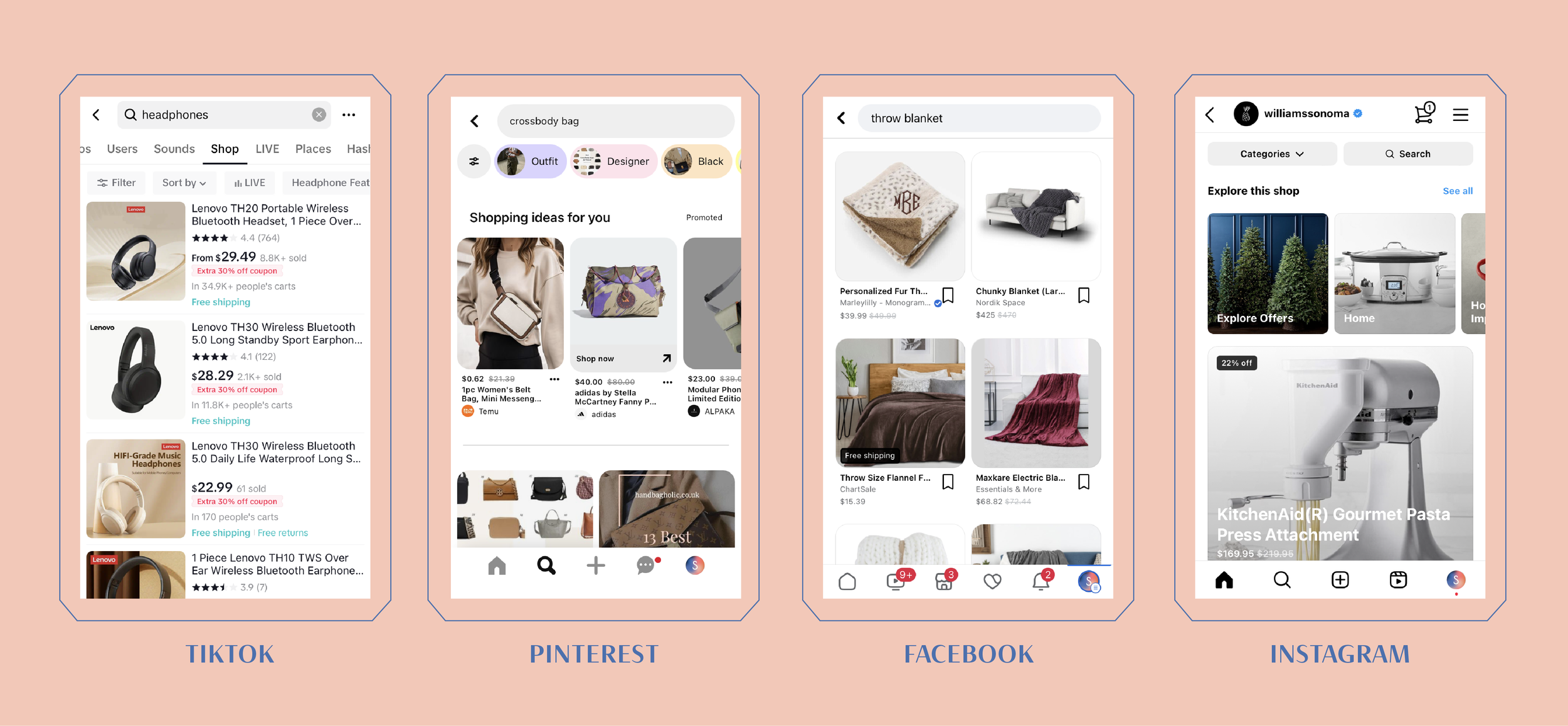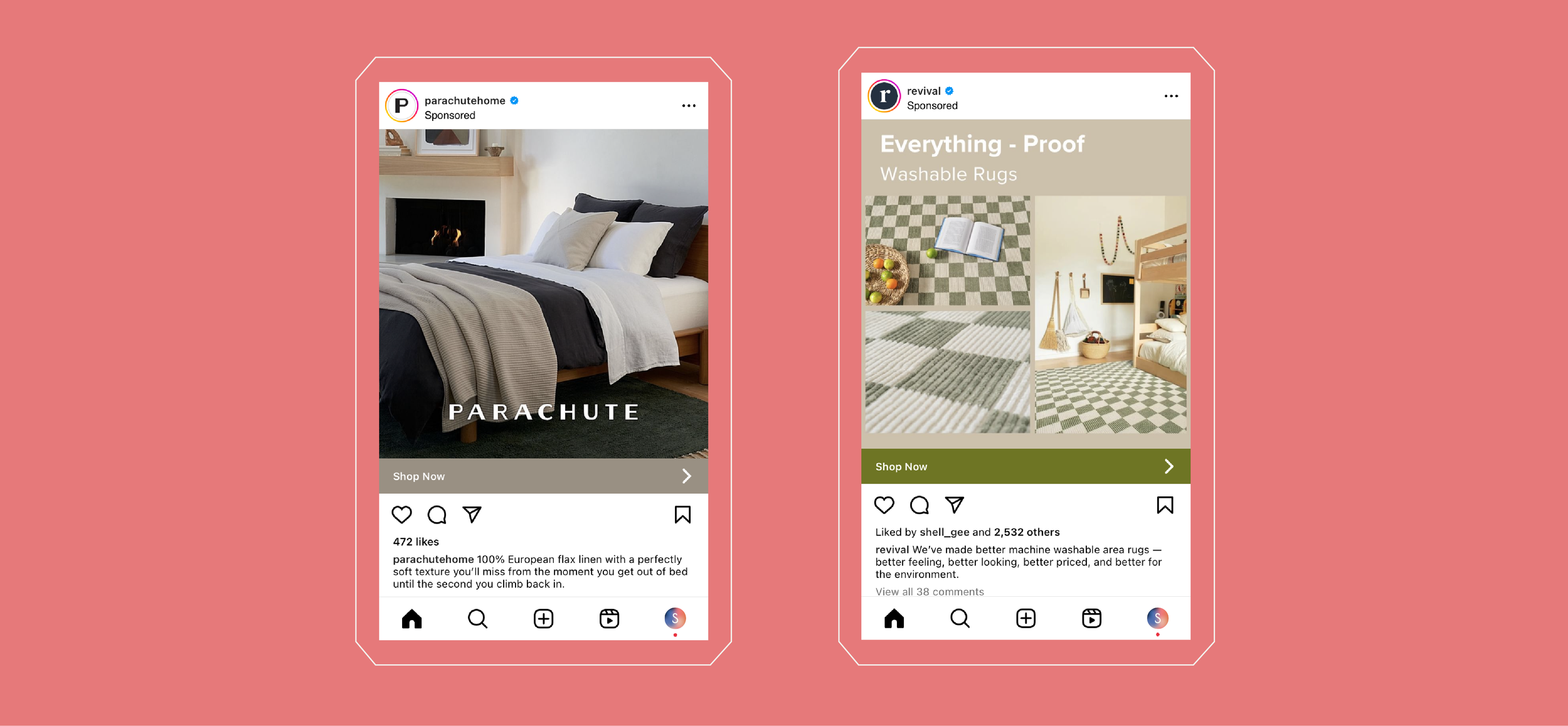From Likes to Sales: 8 Unique Social Commerce Examples
How to wave that magic social wand and turn your likes into buys
Have you ever wished that you could magically go viral one day and get tons of sales?
We want that for you too! But truthfully, you don’t necessarily need to go viral to have your sales blow up on socials.
Enter: ✨Social Commerce ✨Your golden ticket on socials to boosting conversions and growing your brand. We’ll be taking you through this type of ecommerce and sharing some unique social commerce examples. You know, just to inspire you to try it out with your own brand!
What is Social Commerce?
Social commerce is literally just social media shopping. It sounds much more complicated and intricate but that’s the base definition.
But this isn’t your average online shopping experience; it combines the ease of online shopping and the daily activity of social scrolling.
Audiences can partake in social commerce on Instagram, Facebook, Pinterest, and, most recently, TikTok. On social commerce posts, users can click a product link, get more info on the product, and purchase it without leaving the social platform.
We know what you’re thinking: Yes, it’s been an absolute game-changer for e-commerce brands!
Why Should You Try It?
For starters, your Gen Z and Millennial audiences practically live online. So, where else would you want to showcase your brand?
E-commerce as a whole is no joke, in terms of revenue. And social commerce is no exception. Experts predict e-commerce sales surpass a mind-boggling $735 billion in the next few years.
It's not just about sales; it's about convenience. Social commerce does so much of the heavy lifting for your customer, making the buying process smoother than any other outlet for shopping.
What Does Social Commerce Look Like?
If you’re thinking, “Well, I add CTAs to my social posts and stories and have my website linked in my bio… Aren’t I doing the social commerce thing?” Not exactly, friend. Here’s why:
Using social commerce for your brand means creating direct links from your content to purchasing within the social platform itself. This looks like:
Setting up a shop on the platform (like on Meta or TikTok Shop)
Including shoppable links on organic posts and stories
Utilizing shoppable ads (this one’s optional but very worth it!)
This also looks like integrating ecommerce keywords for searchability, to make it even easier for users to get your product in their hands.
Now, let's dive into the nitty-gritty and explore eight brands that are giving us a masterclass of a social commerce example:
8 Unique Social Commerce Examples
1. EyeBuy Direct
This eyewear brand doesn't just sell glasses; it sells an experience. Through virtual try-ons using augmented reality (AR) filters on Instagram and Snapchat, they're letting customers see themselves rocking those frames before making a purchase.
Despite not utiliizing shoppable links regularly, Eyebuy Direct is still swift to make the social shopping experience for their users easy. They also take the time to answer comments asking about their frames–even if it’s already mentioned in the caption.
2. Ruggable
Rugs are one of the hardest products to sell online. (Along with candles and beds). But Ruggable makes light work of it with their social commerce approach.
Their choice to showcase their rugs in lived-in environments gives the user more context when making a decision on texture, color, and size. Then directly linking to their social commerce shop, for even easier shopping experience to buy right from the app. a
Speficially on Pinterest, they stand out through sofa-shopping tips and making it a seamless process from pin to buy.
4. IKEA
IKEA is another brand successfully tapping into the world of social commerce on Pinterest.
Due to inventory and stock availability they don’t specifically connect their product straight to their consumer through pins. But their pins put their furniture right in your home via imagination and inspiration.
Why DIY furniture when you can purchase it at a low and affordable price? IKEA meets DIYers where they are – Pinterest – and offers a price that even they can’t resist. A good social marketing and commerce strategy go hand in hand.
5. Etsy
Another amazing social commerce example? Etsy.
Etsy’s success in social commerce lies in its community-centric approach. Leveraging platforms like Instagram, Pinterest and TikTok, Etsy taps into user-generated content and DIY trends, turning creativity into a currency.
They’ve also made it so their shop owners can promote their Etsy shops on their accounts, lengthening the chain of social commerce.
6. Anthropologie
Anthropologie transforms its Instagram into a visual shopping paradise. Through stunning visuals and engaging storytelling, they create truly immersive shopping experience.
7. Benefit Cosmetics
Benefit Cosmetics takes social commerce to the next level with their interactive content. Utilizing Facebook and Instagram, they offer makeup tutorials and product demos that users can shop while watching, creating an engaging and educational shopping experience.
8. Airbnb
Airbnb ventured into social commerce by offering experiences directly through Instagram. By curating captivating content showcasing unique travel experiences, they inspire wanderlust while making these adventures easily bookable through the platform.
They also cater to both segments of their target audience: guests and hosts. Not only offering visual inspiration to future guests, but they empower and provide tips for hosts to create an even better STR experience.
Let’s Shop!
A wise woman once said, “The shortest distance between two points is a straight line”. So when you’re trying out social commerce for your brand, don’t forget that ease and convenience. The whole point of social commerce is bringing the store even closer to your audience.
If you’re looking for a few helping hands with getting into social commerce for your brand, our team at Scott Social can get you there.
Get in touch with us today, and let's make magic happen!
READ MORE FROM SCOTT SOCIAL
WRITTEN BY:
Victoria
Copywriter + Social Media Strategist














